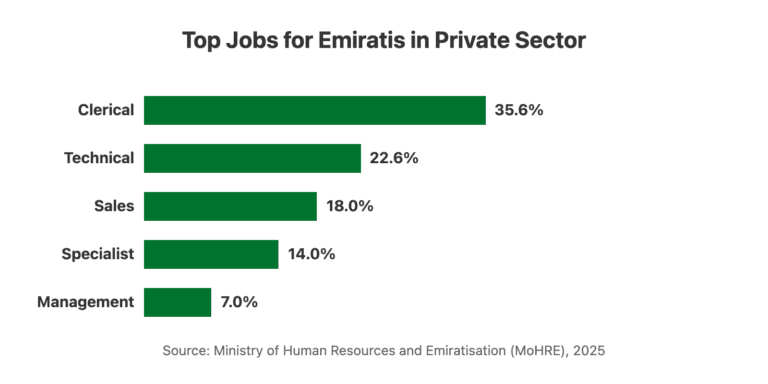
Dubai’s real estate market has long been a beacon for international investors seeking robust returns and portfolio diversification. Among the various investment vehicles available, Residential Real Estate Investment Trusts (REITs) have emerged as a particularly attractive option for those looking to gain exposure to Dubai’s dynamic property market without the complexities of direct ownership. This comprehensive guide explores everything you need to know about Dubai Residential REITs, from their fundamental structure to the regulatory framework governing them in the UAE.
What Are Residential REITs?
Real Estate Investment Trusts (REITs) are investment vehicles that own, operate, or finance income-producing real estate across various property sectors. Specifically, Residential REITs focus on apartment buildings, student housing, single-family homes, and other residential properties. They offer investors an opportunity to participate in the real estate market without having to purchase physical property.
As an investment vehicle, REITs in Dubai have several distinguishing characteristics:
- They collect rent from tenants occupying their properties
- They distribute a significant portion of their income (typically at least 80%) to shareholders as dividends
- They are traded on exchanges, offering liquidity similar to stocks
- They provide investors with exposure to real estate without requiring large capital outlays or property management responsibilities
Table of Contents
Why Dubai’s Residential REIT Market Stands Out
Dubai’s residential REIT market has several unique features that distinguish it from other global markets:
Strong Expatriate Population
With over 85% of Dubai’s population comprising expatriates, the emirate has a substantial rental market. This demographic composition creates a steady demand for rental properties, which serves as a strong foundation for residential REITs’ performance.
Government Initiatives
The UAE government has implemented various initiatives to strengthen the real estate sector, including:
- Long-term residency visas for property investors
- The Dubai 2040 Urban Master Plan
- Reforms to property laws that enhance investor protection
Regulatory Framework
The establishment of the Dubai Financial Services Authority (DFSA) has created a robust regulatory environment for REITs operating in the Dubai International Financial Centre (DIFC), providing investors with increased confidence and protection.
Major Dubai Residential REITs
Several significant residential REITs operate in Dubai’s market:
Emirates REIT
While not exclusively residential, Emirates REIT (NASDAQ Dubai: REIT) includes residential properties in its portfolio. It was the first REIT established in the UAE and operates in accordance with DFSA regulations.
ENBD REIT
Managed by Emirates NBD Asset Management, ENBD REIT (NASDAQ Dubai: ENBDREIT) includes residential assets alongside commercial properties in its diversified portfolio.
Equitativa Residential REIT
Focusing exclusively on residential properties, Equitativa has been at the forefront of Dubai’s REIT market development, offering investors targeted exposure to the emirate’s housing market.
Latest News
- Dubai’s Biggest Visa Fraud Bust: 161 People Hit with Dh152 Million in Fines
- UAE temporarily halts visas for citizens from these 9 countries. Bangladesh on the list — Check details
- Abu Dhabi Issues First Licence Plate for a Self-Driving Delivery Vehicle
Benefits of Investing in Dubai Residential REITs
Steady Income Stream
Residential REITs typically distribute regular dividends, providing investors with a steady income stream. In Dubai, where rental yields can range from 6-10% depending on the location and property type, REITs offer attractive returns compared to global averages.
Portfolio Diversification
REITs offer an effective way to diversify an investment portfolio, as they typically have a low correlation with other asset classes such as stocks and bonds. This diversification can help reduce overall portfolio risk.
Professional Management
Investors benefit from professional property management without having to deal with tenant issues, maintenance concerns, or administrative responsibilities associated with direct property ownership.
Market Accessibility
With minimum investment requirements often lower than direct property purchases, REITs make Dubai’s real estate market accessible to a broader range of investors, including those with limited capital.
Liquidity
Unlike direct property investments, which can be difficult to liquidate quickly, REIT shares can be bought and sold on exchanges, offering significantly greater liquidity.
Read more: UAE Work Permits: Complete Guide for Employers and Employees (2025)
Regulatory Framework for REITs in Dubai
DFSA Regulations
The Dubai Financial Services Authority has established comprehensive regulations for REITs operating within the DIFC, including:
- Minimum distribution requirements (typically 80% of annual income)
- Limits on gearing or borrowing (usually capped at 65% of gross asset value)
- Restrictions on development activities
- Regular valuation requirements
- Disclosure and transparency standards
Non-DIFC REITs
REITs operating outside the DIFC are regulated by the Securities and Commodities Authority (SCA), which has also developed specific guidelines for REIT operations in the UAE mainland.
Tax Implications for REIT Investors
The UAE’s tax environment is particularly favorable for REIT investors:
- No personal income tax on dividends
- No capital gains tax on appreciation of REIT shares
- Corporate tax considerations under the UAE’s new corporate tax regime (effective from June 2023)
International investors should consult with tax professionals regarding potential tax implications in their home countries when investing in Dubai REITs.
Challenges and Risks
Market Volatility
Dubai’s real estate market can experience significant price fluctuations, which may affect the performance and valuation of residential REITs.
Regulatory Changes
As the REIT market in Dubai continues to evolve, regulatory changes may impact operating conditions and profitability.
Currency Risk
For international investors, fluctuations in the AED-USD exchange rate (though the dirham is pegged to the dollar) or their home currency can affect returns.
Supply-Demand Imbalances
Periods of oversupply in Dubai’s residential market can put downward pressure on rental rates and property values, potentially affecting REIT performance.
Current Market Trends and Outlook
Post-Pandemic Recovery
Following the COVID-19 pandemic, Dubai’s residential market has shown remarkable resilience, with property prices and rental rates rebounding strongly since 2021.
Shift Toward Quality
There’s an increasing focus on high-quality, well-located residential properties with strong amenities, which may influence REIT acquisition strategies.
ESG Considerations
Environmental, Social, and Governance (ESG) factors are becoming increasingly important in REIT evaluation, with sustainability features potentially commanding premium valuations.
Technology Integration
Smart home technology and digital property management solutions are becoming standard features in premium residential properties, potentially enhancing REIT operational efficiency.
How to Invest in Dubai Residential REITs
Direct Exchange Investment
Investors can purchase shares of listed REITs through the NASDAQ Dubai exchange or other platforms where Dubai REITs are traded.
Brokerage Accounts
Opening a brokerage account with a firm that has access to Dubai markets is typically required for international investors.
Mutual Funds and ETFs
Some mutual funds and ETFs provide exposure to Dubai’s real estate market, including REITs, offering an alternative investment route.
Due Diligence Considerations
When evaluating Dubai residential REITs, investors should consider:
- The quality and location of properties in the REIT portfolio
- Management team experience and track record
- Fee structure and expense ratio
- Dividend history and yield
- Debt levels and financing structure
- Occupancy rates and tenant quality
Comparing Dubai Residential REITs to Other Investment Options
Versus Direct Property Ownership
Unlike direct property ownership, REITs eliminate the need for large capital outlays, property management responsibilities, and offer greater liquidity, though they may provide less control over investment decisions.
Versus International REITs
Dubai residential REITs typically offer higher yields compared to those in more mature markets like the US or UK, but may come with higher market volatility and regulatory risk.
Versus Other UAE Investments
Compared to other investment options in the UAE, such as stocks or bonds, residential REITs often provide a balance of income and growth potential with moderate risk levels.
Legal Considerations for Expatriate Investors
Residency Requirements
Unlike direct property purchases, REIT investments typically do not provide residency visa eligibility in the UAE.
Estate Planning
Expatriate investors should consider inheritance laws and estate planning implications when investing in Dubai REITs, particularly regarding how these assets would be treated under UAE inheritance laws.
Compliance Requirements
International investors may need to report their Dubai REIT investments to tax authorities in their home countries, depending on applicable laws.
Future of Dubai Residential REITs
The future of Dubai’s residential REIT market looks promising, driven by:
- Continued population growth and urbanization
- Government initiatives to attract international investment
- Ongoing development of regulatory frameworks
- Increasing institutional investor interest in the region
As the market matures, we can expect to see more specialized residential REITs focusing on specific segments such as affordable housing, luxury properties, or student accommodation.
FAQs About Dubai Residential REITs
What is the minimum investment required for Dubai residential REITs?
The minimum investment varies by REIT and platform, but typically starts around $500-1,000 USD for exchange-traded REITs, making them more accessible than direct property purchases.
Can non-UAE residents invest in Dubai residential REITs?
Yes, international investors can purchase shares in Dubai REITs through brokerage accounts that have access to the NASDAQ Dubai or other relevant exchanges where these REITs are listed.
How are dividends from Dubai REITs taxed?
The UAE does not impose personal income tax on dividends from REITs. However, international investors may be subject to tax in their home countries and should consult with tax professionals.
How often do Dubai residential REITs distribute dividends?
Most Dubai REITs distribute dividends semi-annually or quarterly, though this can vary by individual REIT. The distribution frequency should be specified in the REIT’s prospectus.
What has been the historical performance of Dubai residential REITs?
Performance varies by REIT, but many Dubai residential REITs have delivered total returns (dividend yield plus capital appreciation) in the range of 6-12% annually, though past performance is not indicative of future results.
How liquid are investments in Dubai residential REITs?
Listed REITs offer significantly better liquidity than direct property investments, as shares can be bought and sold during exchange trading hours. However, liquidity can vary based on trading volume and market conditions.
Are Dubai residential REITs Shariah-compliant?
Some Dubai REITs are structured to be Shariah-compliant, adhering to Islamic finance principles. Investors seeking Shariah compliance should look specifically for REITs that have been certified as such.
Dubai residential REITs represent a compelling investment opportunity for those seeking exposure to the emirate’s dynamic real estate market without the complexities of direct property ownership. With their combination of regular income, professional management, and liquidity, they offer an accessible entry point to one of the world’s most exciting property markets.
As with any investment, thorough research and due diligence are essential before committing capital. Potential investors should carefully evaluate REIT portfolios, management teams, and fee structures, while also considering their own financial goals, risk tolerance, and investment timeline.
For expatriates planning to relocate to the UAE or those already residing in the country, residential REITs offer a convenient way to participate in the local property market’s growth while maintaining investment flexibility.
This article is for informational purposes only and does not constitute investment advice. Investors should conduct their own research and consult with financial advisors before making investment decisions.





